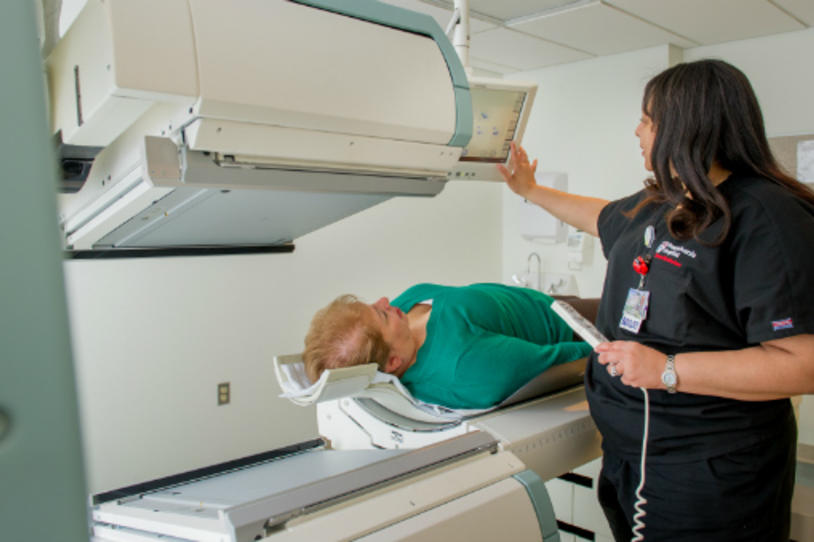
In 2011, the U.S. Food and Drug Administration (FDA) approved a brain imaging test called DaTscan to help diagnose Parkinson's disease (PD). For some people, DaTscan can be a useful addition to the doctor's examination in diagnosing Parkinson's. But not everyone with Parkinson's symptoms needs this brain scan, and a DaTscan can't substitute for a doctor's evaluation.
How Does DaTscan Work for Parkinson's?
In Parkinson's, dopamine cells in the brain break down and die. DaTscan uses small amounts of a radioactive drug to light up dopamine transporters, which move the chemical dopamine into cells when it's done working. In people with Parkinson's, DaTscan appears different because there are fewer dopamine cells and therefore less dopamine transporter activity.
How Can DaTscan Help Diagnose Parkinson's?
DaTscan can differentiate Parkinson's from movement disorders that don't affect the dopamine cells such as essential tremor or drug-induced parkinsonism. When, for example, it's hard to tell whether a person's shaking is from essential tremor or Parkinson's, DaTscan may be used to separate the two conditions, which have different treatment options and prognoses.
DaTscan cannot be used on its own to diagnose Parkinson's because conditions other than Parkinson's decrease dopamine activity and cause abnormal images. Examples include the atypical parkinsonisms multiple system atrophy, corticobasal degeneration and progressive supranuclear palsy, which may look similar to Parkinson's early on.
Why Doesn't Everyone with Parkinson's Get a DaTscan?
Doctors diagnose Parkinson's based on what you tell them (your symptoms) and what they see on examination. It's what we call a "clinical" diagnosis. Although your doctor may order certain blood tests or brain images, including a DaTscan, to exclude other conditions, there is not yet a test specifically to diagnose Parkinson's.
For many people, DaTscan offers little information above what is already known, and wouldn't change the recommended course of treatment. For a person with classic motor symptoms (tremor, slowness, stiffness) who benefits from levodopa (the most effective Parkinson's medication), the diagnosis is already made. Unless the disease progresses in a way that calls the diagnosis into question, DaTscan is likely unnecessary.
What Does a DaTscan Involve?
If your doctor recommends a DaTscan, he or she will write a prescription for you to have the test at a hospital or clinic. You may have to stop certain medications temporarily, and the radiology department will give you specific instructions when you schedule your test. On the day of the scan, you'll be given an injection of the radioactive drug that tags the dopamine transporters, which takes several hours to work. The scan itself takes 30 to 45 minutes. The radioactive exposure, and risk associated, is somewhat small. Estimates vary -- some characterize the amount of radiation as similar to regular x-rays; others to daily environmental radiation we'd be exposed to over a year or so. Potential side effects include headache, nausea, stomach upset, dry mouth and dizziness.
Insurance coverage varies by provider, but Medicare and Medicaid typically cover the test. Always check with your insurer ahead of time.
How Is DaTscan Used in Parkinson's Research?
Volunteers in MJFF's Parkinson's Progression Markers Initiative (PPMI) study -- people with and without Parkinson's or with PD risk factors -- have multiple DaTscans over four years to measure dopamine before motor symptoms start, at diagnosis and over time. PPMI data has shown that DaTscans change significantly in the early years after diagnosis. Although more work needs to be done to validate these measures, DaTscan could be a potential way to diagnose and track disease, and assess the impact of new therapies. Based on PPMI data, clinical trials are increasingly using DaTscan to help confirm participants' diagnosis for enrollment and some are using the images to measure therapeutic effect. Read more about PPMI.
Register for Fox Trial Finder to match with recruiting Parkinson's trials near you.
